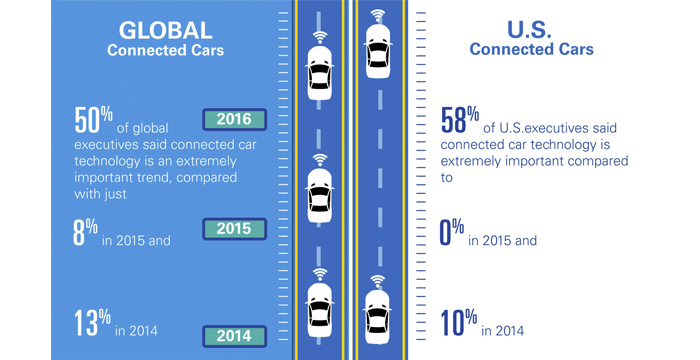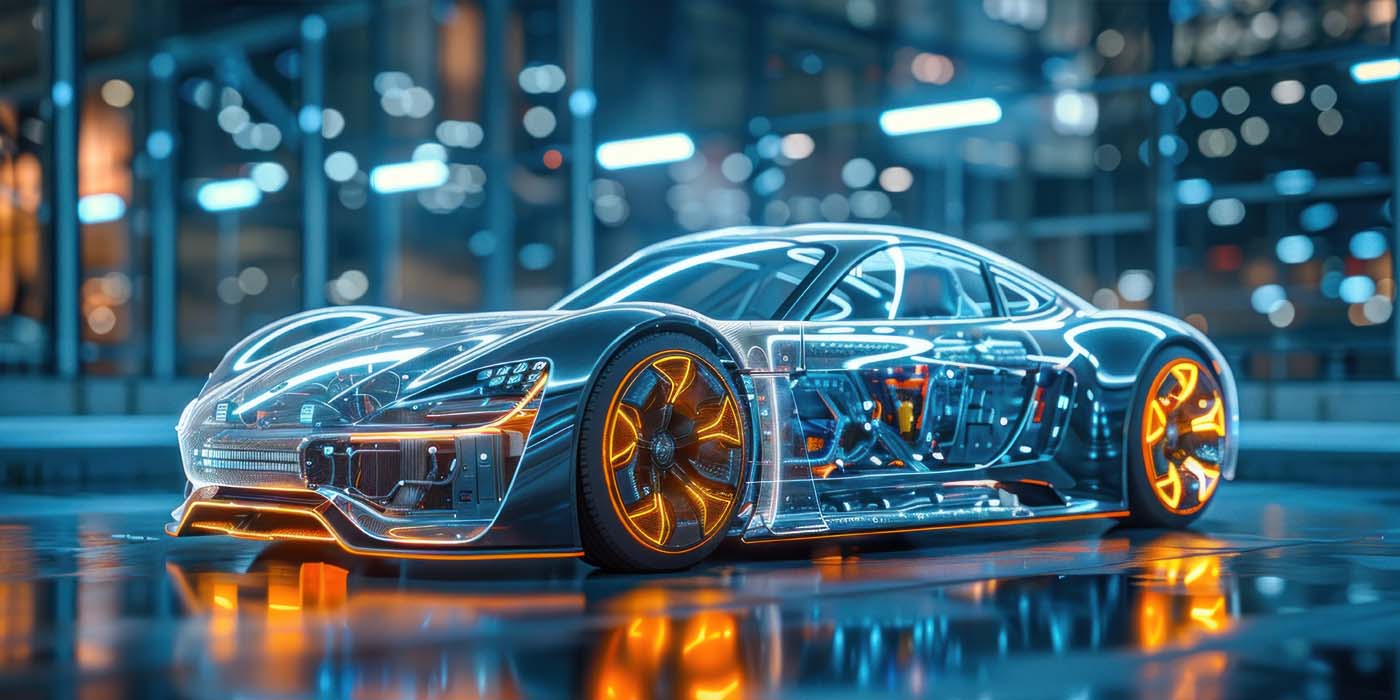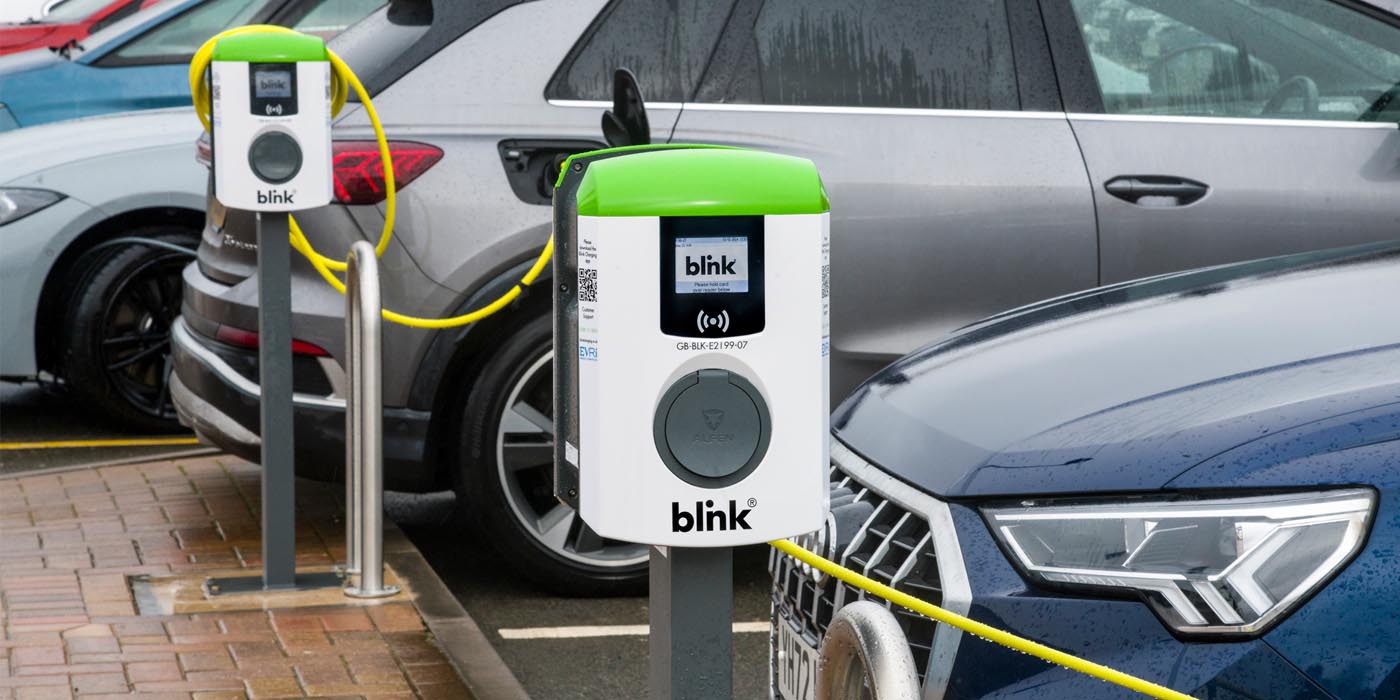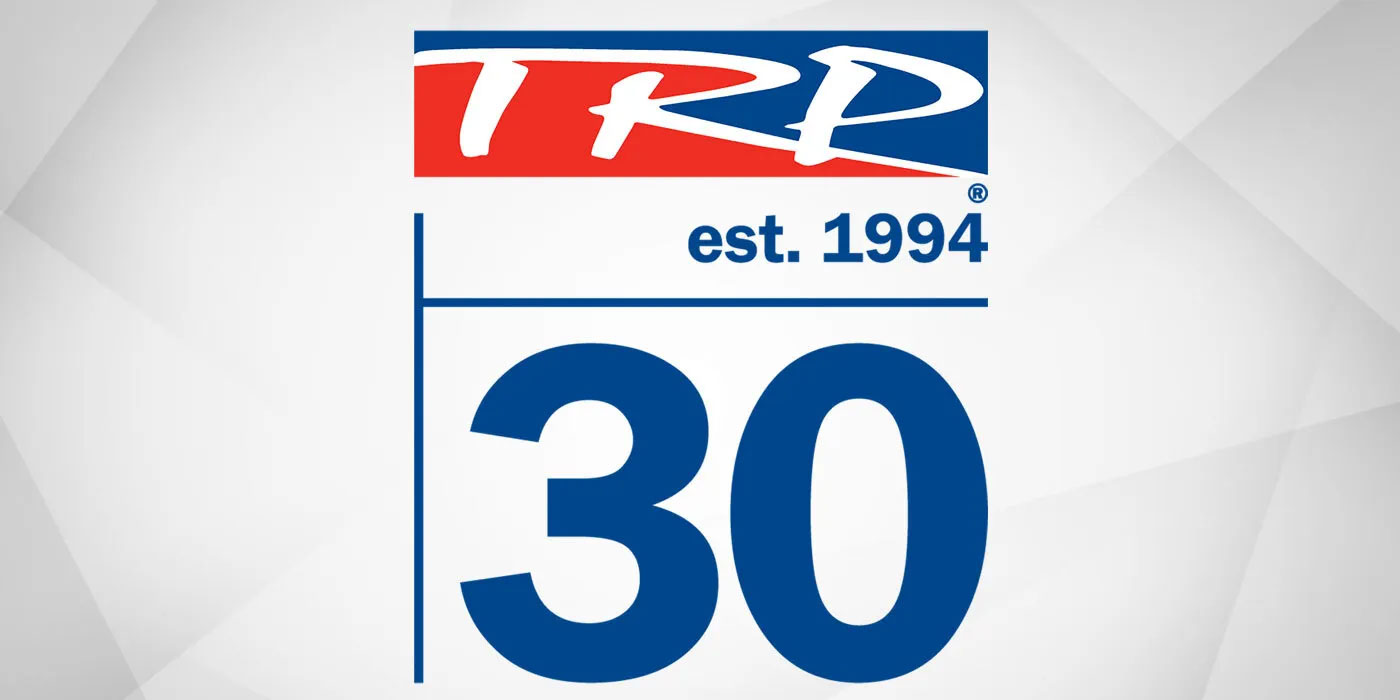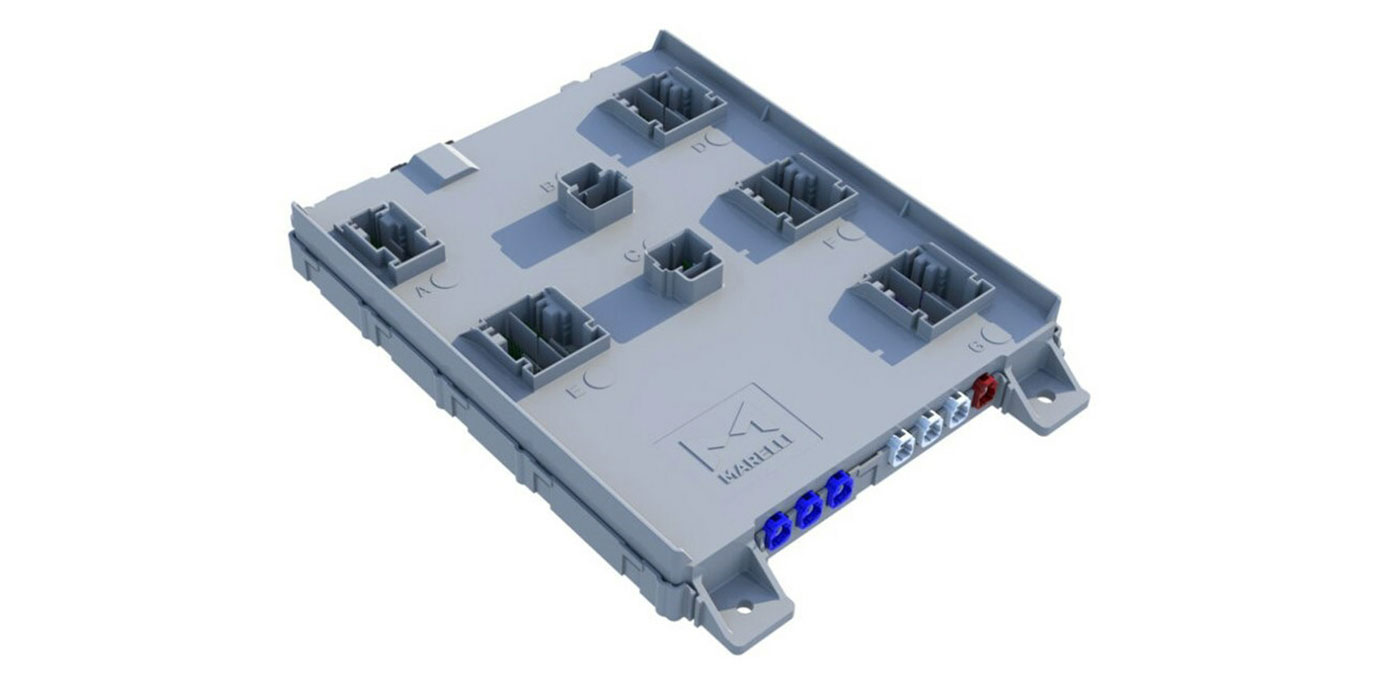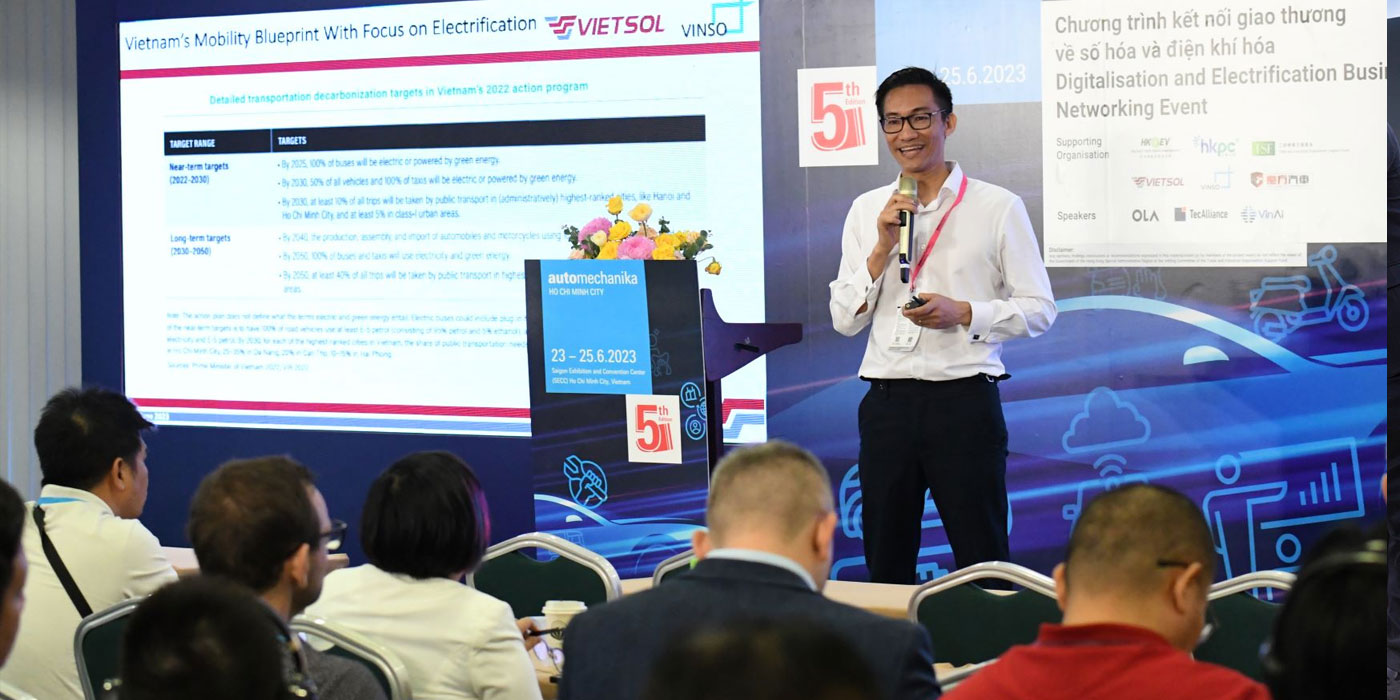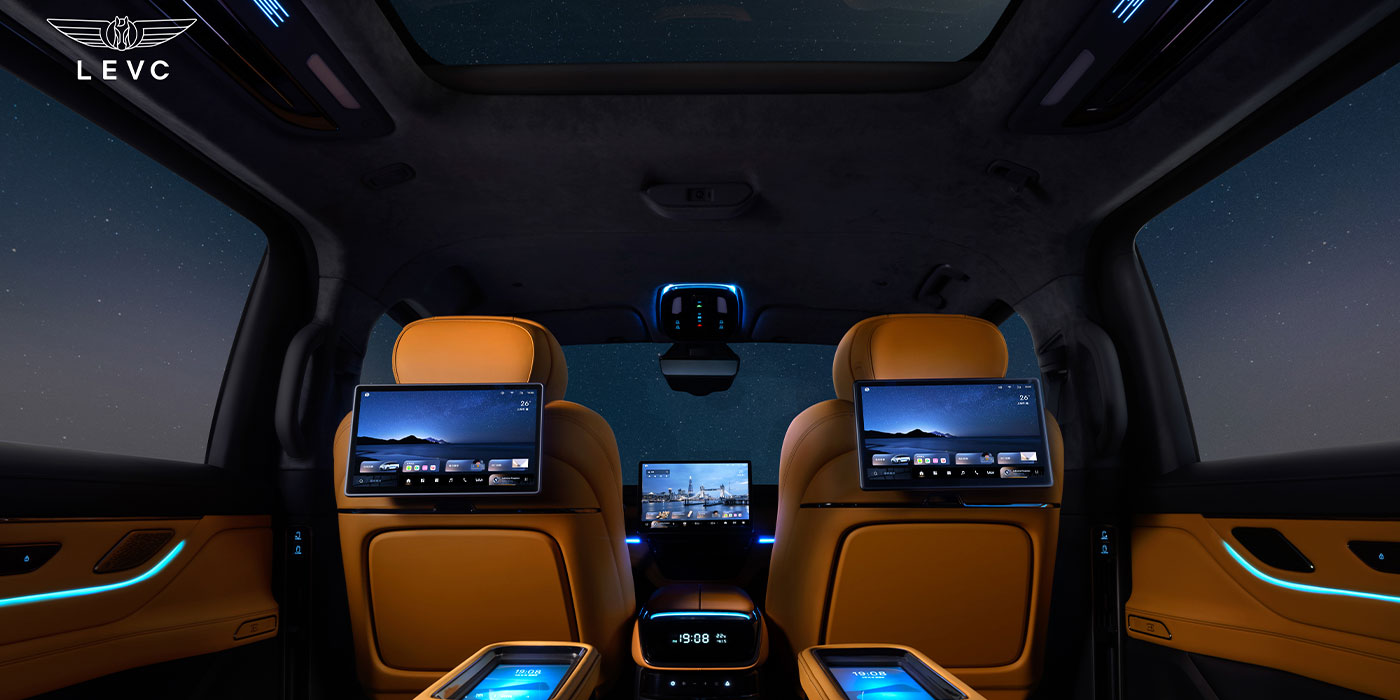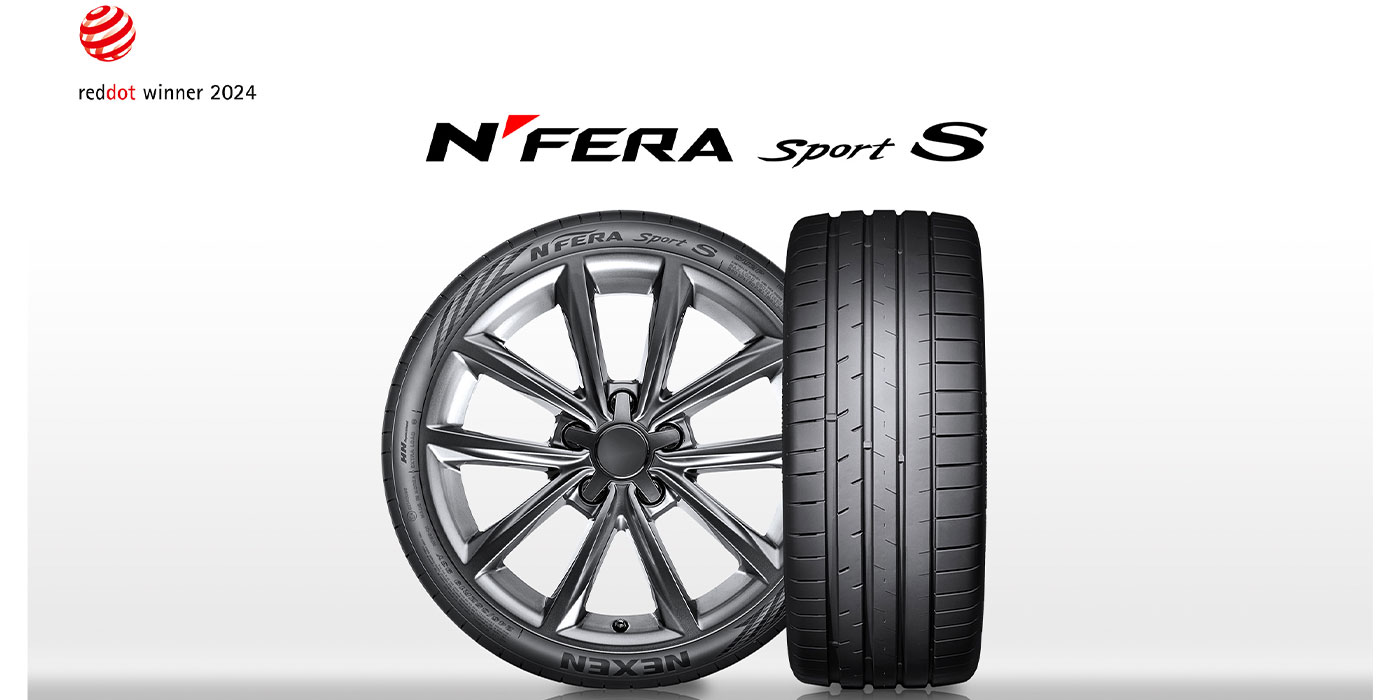After years of skepticism among traditional automakers, the importance of self-driving and connected cars is now registering with global automotive executives, surging to new levels, according to the 17th annual Global Automotive Executive Survey conducted by KPMG International.
The 2016 Global Automotive Executive Survey report can be found here.
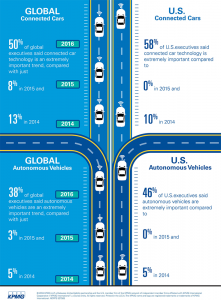 In KPMG’s survey of 800 C-level global auto executives, 38 percent of global execs said autonomous vehicles are an extremely important trend in the industry, up from just 3 percent last year. Similarly, 50 percent of global execs said connected car technology is extremely important, compared with just 8 percent last year. Statistically, U.S. executives embrace these disruptive technologies more than their global counterparts, with 46 percent saying autonomous vehicles are extremely important and 58 percent saying connected cars technology is extremely important.
In KPMG’s survey of 800 C-level global auto executives, 38 percent of global execs said autonomous vehicles are an extremely important trend in the industry, up from just 3 percent last year. Similarly, 50 percent of global execs said connected car technology is extremely important, compared with just 8 percent last year. Statistically, U.S. executives embrace these disruptive technologies more than their global counterparts, with 46 percent saying autonomous vehicles are extremely important and 58 percent saying connected cars technology is extremely important.
“New entrants, from technology giants to startups, are accelerating the pace of innovation, particularly in the area of connected and autonomous cars,” said Gary Silberg, national automotive leader for KPMG in the U.S. “Most of the traditional automotive players have been slow to recognize the power of this trend, but they’re catching on now.”
Silberg observes that while there has been a tremendous shift in just one year, survey data shows that more than a third of auto execs (35 percent) still think that only traditional automakers will drive groundbreaking innovation over the next five years, rather than new entrants. “Lots of innovation should come from the traditional players, but let’s not underestimate the impact that new players and start-ups are having on the sector. Innovation is an undeniable force that will usher in more new players, force some old players to reinvent themselves, and leave others completely behind,” he added.
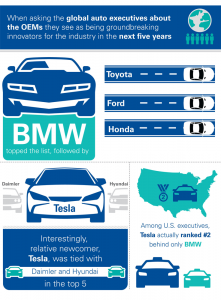 When global auto executives were asked about which OEMs they see as being groundbreaking innovators for the industry in the next five years, BMW topped the list, followed by Toyota, Ford and Honda. Interestingly, relative newcomer, Tesla, was tied with Daimler and Hyundai, ranked in the top five. Among U.S. execs, Tesla ranked number two, behind BMW.
When global auto executives were asked about which OEMs they see as being groundbreaking innovators for the industry in the next five years, BMW topped the list, followed by Toyota, Ford and Honda. Interestingly, relative newcomer, Tesla, was tied with Daimler and Hyundai, ranked in the top five. Among U.S. execs, Tesla ranked number two, behind BMW.
Similarly, when it came to OEMs being perceived as leaders in self-driving technologies, the auto execs tapped BMW, followed by Toyota, Ford, Honda and Volkswagen group. When asked how self-driving technology will impact consumer purchasing decisions over the next 15 years, 19 percent said it will be an absolute purchasing criteria, while 62 percent said it will become more important.
“There is no question that new consumer expectations have emerged about car technology, including autonomous functionality,” said Silberg. “To address competition from new entrants in the business, automakers need to act more like technology and consumer electronics companies, with highly customized products, quicker introduction of new models and nearly flawless quality. We call this the ‘clockspeed dilemma’ and automakers must solve it today or risk becoming obsolete very quickly.”
According to another recent KPMG automotive study, “The Clockspeed Dilemma,” automakers must now reconcile the “Robust Industrial Machine” – the industry’s rigorous standards of Six Sigma Quality and a traditional 5 to 7 year powertrain and vehicle platform clockspeed, with a new “sexy, dynamic experience,” which includes the upgrading of sensors and actuators, along with displays in 18 to 36 months and quarterly over-the-air upgrades of software.

